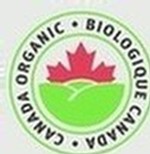Terroir and Organics

The grapevines that grow at L’Acadie Vineyards would tell you that they’ve had to work hard to get where they are today and that they are extremely proud of the flavours that they extract from the warm, dry, rocky, sometimes inhospitable conditions that they grew up in. Now in their 15th year their roots reach over a metre deep and the deeper they go the more minerals, flavours and water they can access that give our Estate wines their unique character. Helping them along the way is a complex ecosystem of fungi, worms and bacteria that our organic practices have been carefully managing and nurturing. It is this link between terroir and organics that the best wines of the world are based on.
We chose our site for the rocks back in 2004. I had been making traditional method sparkling in Okanagan for years, and before that in Ontario, California and Australia, and we were looking for a site to produce the first sparkling wine for Nova Scotia. And we wanted to do it organically after my head was turned, and my path changed, at Summerhill Pyramid winery in Kelowna, an organic winery. As head winemaker, I saw better flavours from grapes farmed organically, after many years working with conventional grapes. Our Nova Scotia vineyard search started in the 90’s on working vacations returning to Pauline’s home province of nine generations. The Annapolis Valley was the focus with it’s climate moderated by the Bay of Fundy, and the Gaspereau Valley sub-appellation was intriguing for both it’s proximity to the bay, and shelter with the Wolfville ridge. The mantra at the time was “south slope, south slope…” but we found a ribbon of ancient seabed with good drainage along the base of the south mountain, facing north-west, that was calling to us. The south-facing other side of the valley had clay loam, typical for Nova Scotia, but I thought a better soil for sparkling was rocky and well drained, making it warmer in the spring and mineral rich from the fractured schist and sandstone deposits - all sedimentary rocks in their origins. Another plus was that the property had been fallow for decades, used for grazing horses, and we could skip the usual three year transition to be organic.
Plants weren’t always on land. Their origins are in the sea being bathed in nutrients constantly, a nice gig. When they made their hardy evolutionary step to land they had to form an alliance with soil organisms to survive, a symbiosis, and in exchange for a small amount of nutritious sap, the organisms living around their roots help them breakdown and make all sorts of nutrients and minerals available to the vines. Root zone influence increases to 2-10 times with this network of mycorrhizal fungi, accessing more nutrients and more flavours. But these microbes are delicate and the rise of pesticide-focused agriculture in the 1950’s reduced their populations significantly. The result is dead soil where the plants have to be fed non-organic usually petroleum-based fertilizers directly… an old adage in organic farming, “with organics you feed the soil, in conventional farming you feed the plant” But with this conventional approach the vines are also less able to extract flavour from the soil, resulting in wines with less terroir flavours, less sense of place, less soul.

We have farmed our site organically from inception, largely to promote a living soil for better terroir flavours. We planted with cuttings propagated in an organic mixture of peat moss, alfalfa and lime, and to decrease weed competition, used a dead mulch of wood shavings and later a living mulch of clover under the vines. Composts teas are brewed in our 300 litre brew tank with composted pomace from the winery, managed with aeration to encourage a fungal-dominant compost. An organic inspector once told me that they were convinced that compost tea and kelp foliars are all a plant needs to thrive in a living soil, by both stimulating growth and encouraging a healthy soil. Foliar teas also help disease control by crowding out opportunistic disease organisms on the leaves and clusters with beneficial organisms. Our recent participation in a three year provincial Terroir Study helped us understand more about our soil- prompting us to renew our cover crop by cultivating and seeding clover. Benefits are aeration and nutrient release and we are further investigating new cover crops to match our terroir. Studies with several universities are qualifying the types of organisms present in our soil, on our leaves and clusters, and in our wild ferments.
There are transitions to organics happening around the wine world, recently from British Columbia’s gigantic Mission Hill and their growing list of winery holdings, and large French wineries such as Roederer. A quote from their winemaker about the iconic, and expensive, champagne Cristal, ” At that price, I just don’t feel comfortable not being organic.”
The organic practices at L’Acadie Vineyards encourage the terroir signature of our estate – minerality and slight saline flavours from schist and sandstone, and I am confident that future generations of our family will be producing estate wines such as Prestige Brut Estate and Estate L'Acadie with those flavours for years to come.
